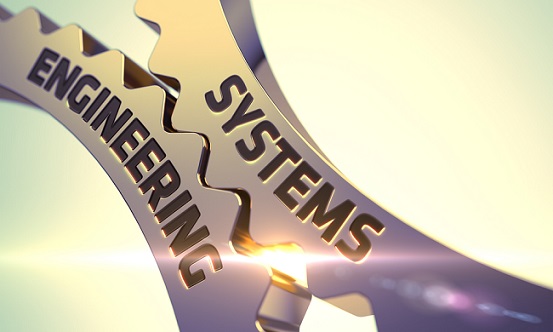Engineers are the analytical problem solvers among us. Complicated devices like aircraft flight control mechanisms, robotic manufacturing assembly lines, rate-adaptive pacemakers, computer communication systems, and the like require the separate skills and talents of specialists in mechanical, electrical, architectural, chemical, and computer engineering. But systems and control engineers are the ones who coordinate everyone’s efforts to make all the human and technological elements work together.
From large corporations to small startups, companies in the automotive, aerospace, computer, manufacturing, power generation and other businesses, as well as government agencies, seek people with the interdisciplinary and problem-solving skills to bring together the various moving parts of their organizations and make things happen.
Even if you’re currently working full time, you can earn an online MS in systems engineering and be on your way to the next step in your career. To be sure it’s the right step, consider your answers to these questions:
Do You Like To Figure Things Out?
Having the curiosity to figure things out until you know how they work is one of the key attributes of successful engineers in general, and it might be even more so for systems engineers because part of their jobs is integrating the human element into the equation. And humans, as you may have noticed, don’t always work the way you’d wish they would.
Do You Like To Turn The Theoretical Into The Practical?
Theoretical concepts are great as far as they go, but business and industry require applications of those concepts that work in the real world. Putting theories up on their feet to use in practical ways is where the rubber meets the road.
Are You A Problem Solver By Nature?
Engineering, and systems engineering in particular, is based on solving problems and being able to grasp the small details as well as the big picture. Whether it’s building a bridge, designing an interconnected network of power stations, or modeling an assembly line that’s efficient as well ergonomically comfortable for workers, what’s required is the ability to take disparate elements – and the people who create them — and combine them cohesively so everything works in tandem.
Are You A Creative Thinker?
Creativity comes in all sizes, and it’s all to the good, but systems engineers need to be able to flex their imaginations to conceptualize innovative solutions to problems old and new.
Are You Good At Math?
This should be an easy question. Most people are well aware of whether or not they enjoy and are good at working with numbers. You don’t need an undergraduate degree in engineering to pursue a masters in systems engineering, but you do have to demonstrate strong proficiency in calculus and math.
How Are Your Mechanical Skills?
Were you the problem child who took apart the toaster to see how it worked? And more importantly, put it all back together in time for breakfast? Are you good at visualizing and understanding the relationship between elements and can you make rational assumptions about them and then put them into practice?
Are You Comfortable With Other People?

Do You Communicate Well?
Both in how you speak and how you write, your communications have to be sufficiently detailed but also clear and readily understandable by your engineering peers as well as by management and clients you will be working with who don’t have the same technical backgrounds. Miscommunication is often a primary reason that projects fail, so while you may know what you mean, it’s essential that everyone else does, too. Fortunately, good communication is one of the required skills that can be learned and practiced and that improves over time.

Leave a Reply